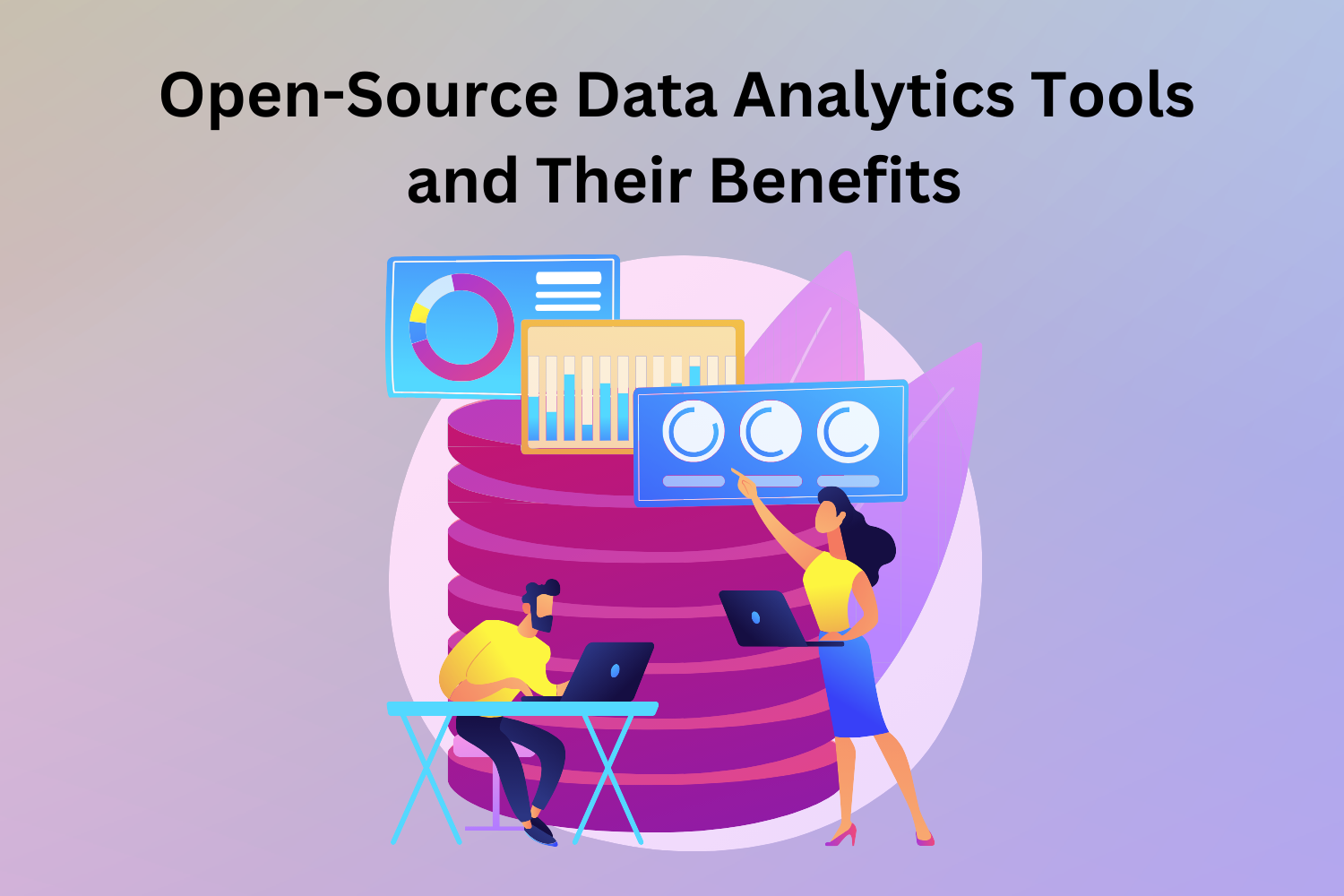 Effectively analysing vast amounts of data is critical for success in many fields. Whether your objective is to boost corporate intelligence, optimise operations, or enhance research skills, it is essential for professionals to learn Data Analytics. You can use Data Analytics Tools and open-source data analytics technologies without spending significant money. These tools are widely accessible and packed with features to suit users of all experience levels. This blog explores how these tools can transform data handling and decision-making processes across various industries.
Effectively analysing vast amounts of data is critical for success in many fields. Whether your objective is to boost corporate intelligence, optimise operations, or enhance research skills, it is essential for professionals to learn Data Analytics. You can use Data Analytics Tools and open-source data analytics technologies without spending significant money. These tools are widely accessible and packed with features to suit users of all experience levels. This blog explores how these tools can transform data handling and decision-making processes across various industries.
Table of Contents
-
What are Open-Source Data Analytics Tools?
-
Benefits of Open-Source Data Analytics Tools
-
Popular Open-Source Data Analytics Tools
-
Implementing Open-Source Tools in Your Workflow
-
Conclusion
What are Open-Source Data Analytics Tools?
Software programs whose source code is made openly available for usage, modification, and distribution are known as open-source data analytics tools. This transparency promotes teamwork in the software development process by utilising the combined knowledge of a worldwide community. Users can modify the tools to suit their requirements, add new features, or make extensions, promoting creativity and ongoing progress.
Benefits of Open-Source Data Analytics Tools
Below are the benefits of Open-Source Data Analytics tools
Cost-Effectiveness
A significant advantage of open-source tools is that they are widely affordable. In contrast, open-source tools usually come with unrestricted downloading and use, free of charge. Being affordable, they find use among students, researchers, and businesses operating under limited budgets and fighting against the data analysis skills shortage.
Flexibility and Customisability
Open-source software is incredibly flexible. Users can alter the code to improve functionality, add features, or customise the tools to suit their operational workflows better. This degree of customisation is priceless for businesses whose particular data requirements cannot be satisfied by off-the-shelf products.
Community Support and Innovation
Large, vibrant communities support open-source initiatives. These networks foster innovation and offer free assistance via forums and chat rooms. Regular upgrades and additions are commonplace because the global developer community contributes ideas and code.
Transparency and Security
Open-source software's transparency can result in improved security. Many eyes review the code, meaning vulnerabilities are frequently found and fixed quickly. Furthermore, users can make sure the program satisfies their security requirements without depending entirely on the vendor by being able to view and alter the source code.
No Vendor Lock-in
Open-source technologies avoid vendor lock-in, in which customers grow reliant on a software vendor's whims and price fluctuations. Users of open-source software maintain ownership over their programmes and are free to change providers or customise solutions without having to pay exorbitant switching expenses.
Popular Open-Source Data Analytics Tools
Below are the popular open-source data analytics tools
Apache Hadoop
The capacity of Apache Hadoop to handle and store enormous volumes of data is well known. Its structure is perfect for companies handling large amounts of data because it uses big data analytics tools and a distributed file system.
R Programming Language
R is a practical environment and language for statistical computing and graphics. Statisticians and data miners frequently use it to develop statistical software and data analysis.
Python and Its Libraries
Python is a very flexible programming language, and it has been chosen by many data scientists because it is a very accessible language. It offers libraries like Matplotlib, NumPy, and Pandas, which are perfect for analytics. Such technologies are used for statistical analysis, visualisation, and enhancement.
Elasticsearch
Based on the Lucene framework, Elasticsearch is a distributed full-text search engine that supports several tenants, an HTTP web interface, and schema-free JSON documents. It is beneficial for analysing data in real time.
Apache Spark
Apache Spark is an open-source unified analytics engine for analysing massive data. Compared to Hadoop MapReduce, it runs apps in Hadoop clusters 100 times quicker in memory and ten times faster on disc.
Implementing Open-Source Tools in Your Workflow
It takes significant planning to use open-source software, particularly regarding infrastructure adaptation and talent development. To use these tools effectively, follow the below steps:
-
Assess Needs and Capabilities: Understand your data requirements and evaluate if your team has the skills to use these tools effectively.
-
Choose the Right Tool: Decide which tool best suits your requirements. Consider factors such as the learning curve, processing power, and data types.
-
Train Your Team: Make an investment in staff training to get the most out of the selected tools. Community forums, workshops, and online courses can be helpful.
-
Start Small: Before moving on to more difficult data analysis jobs, start with simple, achievable projects to become comfortable with the tools.
-
Contribute Back to the Community: Give back to the community if you can. This might be by offering suggestions, sharing your edits, or assisting others in finding solutions.
Conclusion
Open-source technologies are leading the way in the ongoing evolution of the data analytics ecosystem. These tools provide reliable, adaptable, and reasonably priced data analysis options. By implementing open-source software, organisations can access many potent capabilities and a cooperative community that fosters innovation. Regardless of your experience as a data scientist, open-source tools offer vital resources to improve your analytical pursuits, resulting in more informed choices and fruitful consequences.
 icons at the top right corner of the subsection.
icons at the top right corner of the subsection.